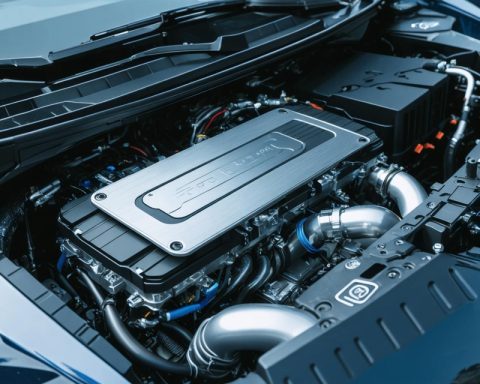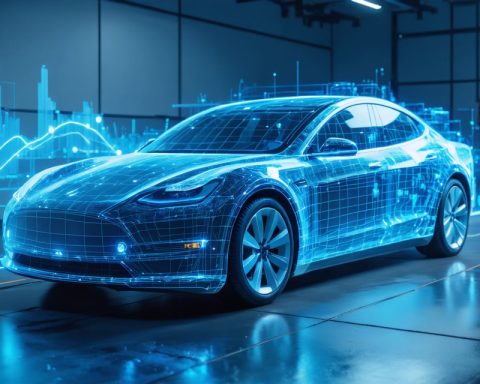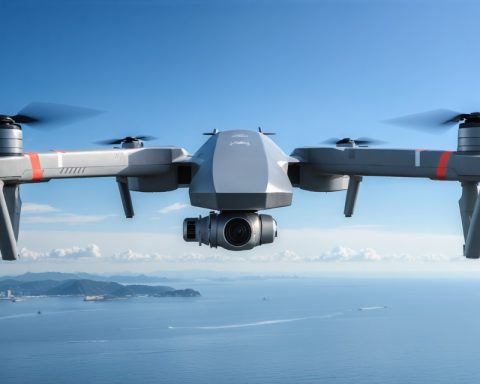Samsung is preparing to revolutionize its user interface by implementing advanced artificial intelligence technology, streamlining how users interact with their devices. This innovative approach aims to eliminate the need for manual adjustments to settings, offering a more personalized experience. Samsung plans to first introduce this AI-driven capability in its smartphones, with intentions to broaden its application to home appliances and third-party gadgets in the future.
Picture a scenario where your smartphone automatically optimizes its settings for various activities, such as capturing photos or adjusting sound levels, without requiring your input. This is the promise of Samsung’s latest advancements, which are expected to enhance not just photography but also general settings like keyboard configurations.
In the grand scheme, Samsung envisions these AI improvements as a stepping stone to a fully integrated Internet of Things (IoT) ecosystem. The upcoming Galaxy Unpacked event in 2024 has generated excitement about potential announcements, although specific details about the removal of the settings app or a timeline for updates remain under wraps.
For users wary of relinquishing control, Samsung will still provide options for manual adjustments via voice commands. As the company advances its AI integration, it aims to simplify user experiences while fostering greater synergy between personal devices and smart home systems. Ultimately, Samsung’s innovations promise a future where technology is deeply attuned to individual preferences, enhancing daily life.
The Impact of AI on Daily Life: Samsung’s Vision for a Smarter Future
As Samsung prepares to launch its AI-driven user interface, the company sets a course towards enhancing millions of users’ daily interactions with technology. This radical shift not only redefines how individuals engage with their smartphones but also has broader implications for communities and countries. With automation taking center stage, individuals stand to experience a profound transformation that permeates their daily routines.
A significant aspect of this technological evolution is the potential to streamline mundane tasks. Imagine a world where your smartphone could recognize your typical behaviors—like waking up at a specific time or preparing for a workout—and automatically adjust settings to fit those activities. This could lead to substantial time savings, improving productivity and allowing users to focus on what matters most in their lives.
The ripple effects of AI on a community level could be equally transformative. In areas where technology access is limited, the introduction of seamless AI interfaces might spark increased digital literacy and engagement. Educational institutions could harness this technology to cater to diverse learning styles, ultimately fostering a more inclusive environment. As a result, communities may see enhanced opportunities for economic growth, driven by a workforce adept in navigating advanced technologies.
However, as with any technological advancement, controversies arise. The balance between automation and manual control raises questions about user agency and privacy. Critics argue that while AI can enhance efficiency, it may also erode personal autonomy, creating a dependence on technology that some may find concerning. Samsung’s promise to maintain manual adjustments through voice commands attempts to assuage these fears, yet it remains crucial for consumers to engage critically with these changes.
At a national level, the implications of AI integration extend beyond individual experiences. Countries investing in smart technologies may find themselves positioned as global leaders in innovation, attracting investments and talent. Conversely, nations that lag in adopting these digital advances might face economic disadvantages. This disparity could widen the global divide, highlighting the urgent need for policymakers to prioritize technology access and education.
Interesting facts also come into play as we consider the broader landscape of AI. For instance, research shows that individuals are increasingly willing to trust AI with their personal data, especially when it enhances their user experience. A survey conducted by a leading tech firm revealed that over 70% of respondents were open to sharing data if it meant receiving more personalized services.
With Samsung’s vision for a fully connected Internet of Things, the future looks promising, albeit complex. The nexus of AI, community empowerment, and individual control will shape how society navigates these changes. As we stand on the brink of this new frontier, its ramifications on our daily lives, communities, and countries warrant careful consideration and conversation.
For more information, you can visit the official Samsung website at Samsung.
The article has been updated: 2024-11-06 08:38
Here are some suggested related links:
1. Samsung Official Site – Explore the latest products and innovations from Samsung, including AI technologies and user experience enhancements.
2. TechCrunch – Stay updated with the latest tech news, including developments in AI and how companies like Samsung are integrating it into their products.
3. The Verge – A source for the latest news in technology, gadgets, and consumer electronics, providing insights into Samsung’s advancements.
4. Forbes – Read articles on business and technology trends, including analysis of AI impacts on user experience and company strategies.
5. Engadget – Discover reviews, news, and insights about the latest technology products, including those by Samsung and their innovative features.
6. BBC Technology News – Get the latest updates on technology developments, including AI and its applications in enhancing user experiences across various platforms.
7. Ars Technica – A publication focusing on technology and its impact, offering in-depth analysis on AI advancements and their influence on user experiences.
8. CNET – A trusted source for tech-related news, reviews, and tips, featuring updates on Samsung’s AI initiatives and product enhancements.
9. Digital Trends – Explore articles on consumer technology trends, including how AI is evolving user experiences across devices and platforms.
10. Wired – Delve into stories about how technology shapes culture, including features on AI innovations from tech giants like Samsung.
The article has been updated: 2024-11-06 21:32
What are some of the key AI innovations introduced by Samsung to enhance user experience?
Samsung has introduced several cutting-edge AI innovations aimed at enhancing user experience across its devices. These include smart assistants that leverage machine learning to provide personalized responses and suggestions, improved image processing algorithms in their camera systems for better photo quality, and intelligent battery management features that optimize performance based on user habits. Additionally, Samsung’s AI systems are designed to integrate seamlessly with smart home devices, allowing users to control and automate their environments more intuitively. Through these innovations, Samsung aims to create a more personalized and efficient experience for its users.












